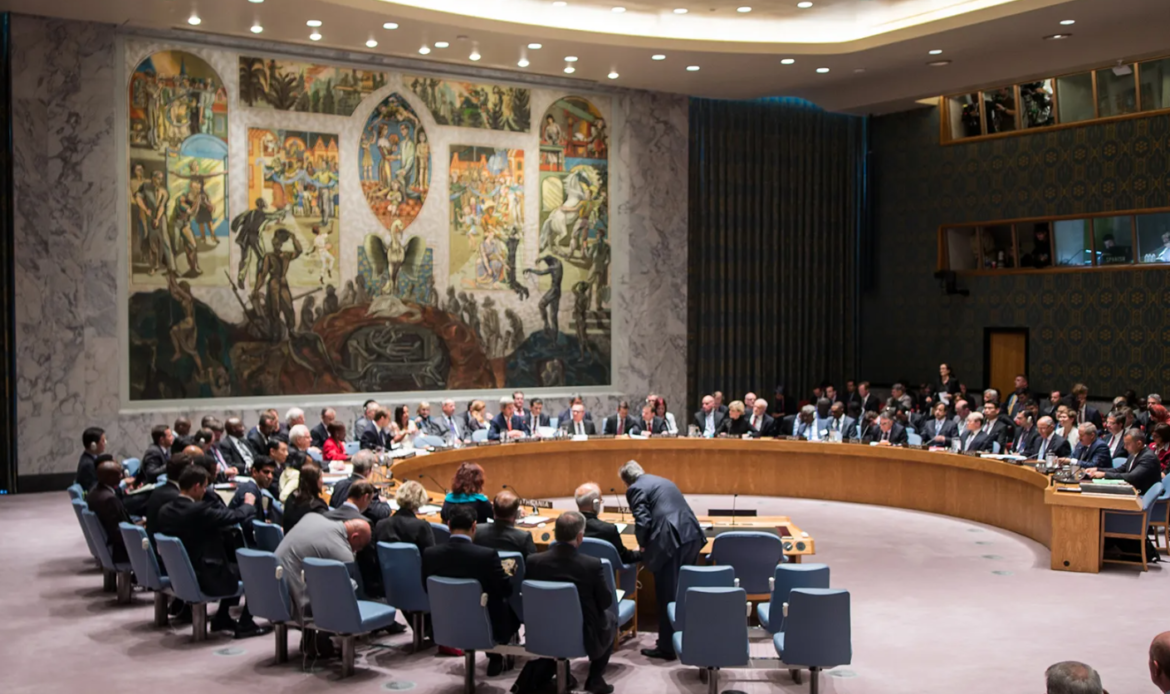The United Nations Security Council convened today for its monthly session to discuss the situation in the Middle East, including the Palestinian issue.
The session featured briefings from UN Special Coordinator for the Middle East Peace Process, Tor Wennesland, and Louisa Baxter, Head of the Emergency Health Unit at Save the Children.
During the meeting, council members unanimously stressed the urgent need for an immediate ceasefire and the facilitation of humanitarian aid throughout Gaza, including polio vaccines. They warned of escalating regional tensions if the conflict persists.
Wennesland urges immediate ceasefire
Addressing the council via video link from Jerusalem, Wennesland described the situation in the Middle East as “volatile,” cautioning that even a small escalation could lead to uncontrollable intensification of the conflict, potentially involving millions of people. He emphasized that a ceasefire agreement is critical for regional peace and stability.
Wennesland pointed out that the need for a ceasefire agreement is more pressing than ever, and that failure to address this issue means that prospects for a more stable, peaceful, and secure region will remain elusive. He urged the international community to act quickly, noting that there is no time to lose.
Wennesland also reported significant human losses in Gaza, with over 40,000 Palestinians killed during the war. He expressed concern over the situation in the West Bank, describing it as a “tinderbox” due to ongoing Israeli raids and violence.
Save the Children: Gaza’s children under bombardment, death and siege
Louisa Baxter, speaking from Deir al-Balah in central Gaza, painted a grim picture of the humanitarian crisis. She reported that over 1.9 million people have been displaced, living amidst rubble and sanitation issues. Baxter said more than 14,000 children have been killed, a figure that might be an underestimate due to outdated data.
Baxter emphasized the severe impact on children’s health, citing widespread malnutrition and disease exacerbated by the blockade. She noted the deliberate hindrance of humanitarian aid, including life-saving medications, and revealed the emergence of polio in Gaza, marking a significant setback in global eradication efforts.
She called for an immediate, sustained ceasefire to facilitate humanitarian access and vaccination efforts, stressing that without such measures, the crisis could worsen dramatically.
International reactions
China’s permanent representative to the UN, Fu Cong, criticized Israel for ignoring calls for a ceasefire and urged the country to adhere to international humanitarian laws, including opening border crossings for aid. He warned that peace in the region is hanging by a thread.
France’s Deputy Permanent Representative, Nathalie Broadhurst, reiterated the call for an immediate ceasefire to end civilian suffering and enable unhindered humanitarian aid. She echoed concerns about the resurgence of polio and called on Israel to ensure vaccination efforts can proceed.
The UK’s Deputy Permanent Representative, James Kariuki, labeled Gaza as the “most lethal place for children in the world,” emphasizing the urgent need for a ceasefire and highlighting recent diplomatic efforts to address the crisis. He stressed the necessity of unified international action to prevent a broader regional crisis.
US Ambassador Linda Thomas-Greenfield supported increased humanitarian aid, including polio vaccines, and urged all parties to refrain from actions that could undermine ceasefire negotiations. She underscored the importance of speaking with one voice in the council to ensure the success of the ceasefire talks.
Source: WAFA



